Quick Summary:
In 2021, a wide range of mobile applications will be available. It comprises Android, iOS, Native development, Cross-platform apps, Hybrid apps, and Progressive Web Apps (PWAs). But which is the best for business? Users can be provided with a mobile experience in a variety of ways. Each project necessitates a distinct strategy. This blog post will go over the differences between native vs hybrid vs cross-platform app development. What are the best qualities of each, and when should you use them? Let’s have a look!
With the growing popularity of smartphones, more people are using mobile applications for various purposes, including accessing news or fresh information, shopping, playing games, ordering meals, and engaging on social networking platforms. According to Statista, there are 6 billion mobile phone users worldwide, with the number expected to increase by several hundred million in the next years.
The yearly number of app downloads worldwide is expected to reach 299 billion in 2023, up from around 247 billion in 2020.
Not only this, in 2023, mobile apps are projected to have 935 billion US dollars in revenues via paid downloads and in-app advertising. With this stiff competition. Business owners are under pressure to focus more on quality, functionality, precision, and other key factors that will persuade potential clients to choose their services over competing apps on the market. To do this, businesses face challenges such as deciding which technology to work with or which app development framework to use to increase client engagement.
This blog will discuss the major application development approaches – Native, Hybrid, and Cross-Platform. Let’s take a look at each of them.
Native App Development
Native apps are tailored to each platform’s needs. They use technology that is specific to either Android or iOS. Platforms execute their operating systems using their languages. As a result, the coding for Android and iOS differs. Android mobile app development is done with Kotlin and Java. The iOS mobile app can be written in Swift or Objective C.
Users choose native apps because of their excellent performance and platform-specific user experience. This strategy, on the other hand, deters entrepreneurs due to its high cost. The main difference between Native vs Hybrid vs Cross-Platform app development is the expense.
Features of Native Mobile App
- Robust performance with simple code
- Solid functioning
- Higher API usability
- Customized UI components
- Enhanced user experience
- Easier bug prevention
- Single layout
- Suits screen-ratios
How to Build A Native App?
- Choose an app concept.
- Market analysis
- Make appropriate plan
- Define the UI/UX
- Create the prototype
- Test the prototype
- Create the final product
When to Use Native App Development?
- When you need only one platform to launch your mobile app.
- The application constantly depends on hardware functionality (Camera, GPS, and more ).
- Developing 3D games with heavy animations
- When you want to give the best user experience, especially when your company is launching the app first.
Native App Development Tools
The following are the tools that are used in native app development. They are divided into two categories Android and iOS.
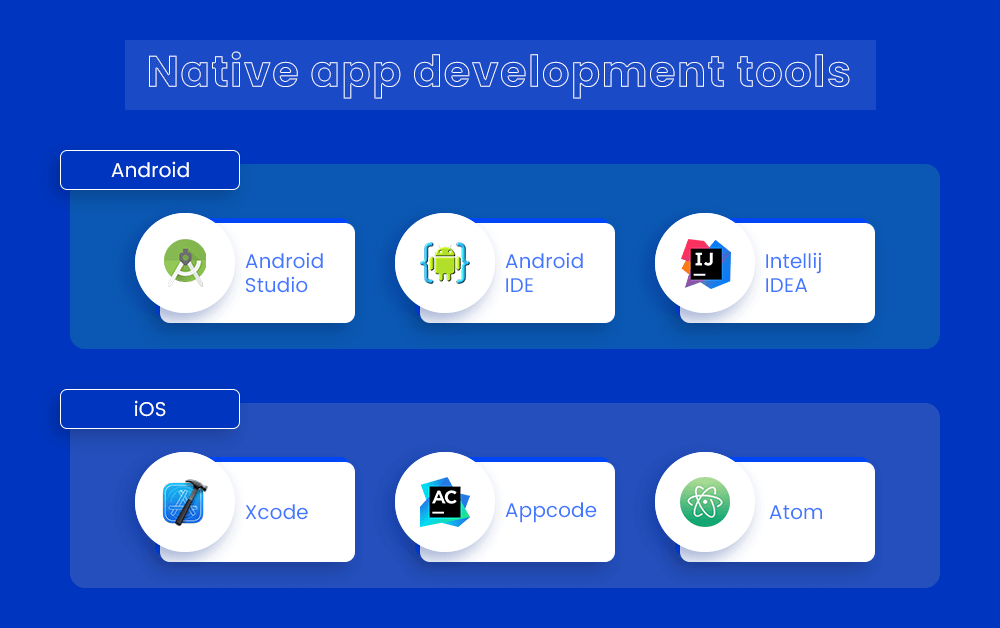
Advantages of Native App Development
- Superior runtime optimization
- Faster Performance
- Access to new features
- High-quality functionality & UI/UX
- Better store positioning
- Development environment tools
- Full access to device features
Disadvantages of Native App Development
- No multi-platform support
- Higher development cost
- No reusable code
- Higher cost and more time
- Limited usage
To Summarize
Developing a native app is expensive, but it’s worth it when it comes to the performance of critical apps. Unfortunately, if you’re a startup company or starting your own business, you cannot allocate the budget needed to build two separate apps. And development time also doesn’t look inspiring.
Hybrid App Development
Hybrid app development is the blend of both native and web solutions. Developers embed the code written in web development language (HTML, CSS, and JavaScript) into a native app using plugins like Apache Cordova or Ionic Capacitor. The plugin system allows developers to access the native features of platforms.
Hybrid apps deploy on platforms can download the same as a native app. Hybrid mobile apps run from within a native app and own embedded browsers with WebKit’s help. For example, Android uses WebView, and iOS uses WKWebView that displays a hybrid app. Hybrid app development is quite a time saviour and cost-effective than the native app. You can write the code once and use it on multiple platforms. It renders user experience and performance close to native apps. However, it is challenging to achieve a great UI/UX and navigation pattern from a visual perspective.
Features of Hybrid App Development
- Portability Support
- Can manage several hardware and software features
- Plugin support
- Cost-effective
- Faster, simpler application development
- Comparatively faster time to market
- Easier to re-code
How to Build Hybrid App?
- Select an app concept.
- Market research
- Make a suitable plan.
- Define the user interface(UI/UX).
- Make a working prototype.
- Prototype evaluation
- Make the finished product
When to Use Hybrid App Development
- When you have a wider audience using your app on the various platform- mobile & web
- Develop simple apps without major animations and other complex features.
- When you’re time-bound and want to launch the application on various platform
- Want to test your idea in MVP (Minimum viable product)
Hybrid App Development Tools
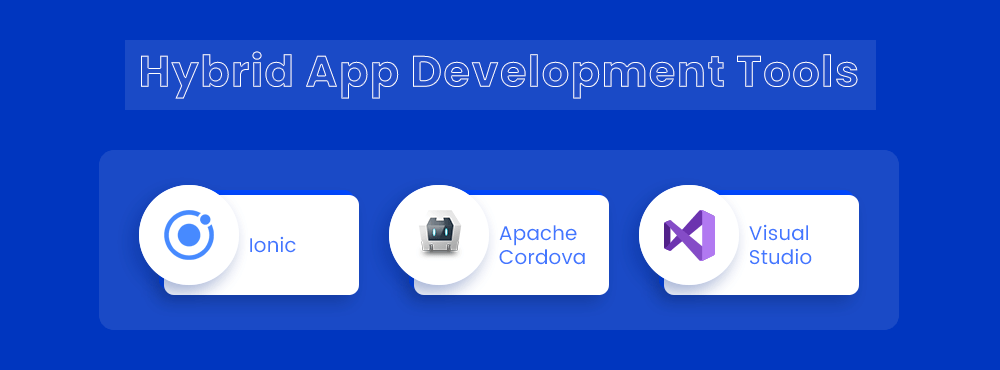
Advantages Of Hybrid App Development
- Decreased development cost
- Enhanced UI/UX
- Effortless Integration
- Offline data & Information Support
- Easy to Maintain
Disadvantages of Hybrid Applications
- Sluggish Performance
- It won’t work with complex applications
- Limited OS features access
- Doesn’t support offline data
- One codebase issue with certain features provided for Android & iOS
- Challenge to achieve great UX
To Summarize
Hybrid app development was once seen to be a compromise. However, the current browser’s capabilities and hybrid frameworks have vastly increased in recent years. As a result, a browser can easily support the most basic app functions. The conclusion is obvious: hybrid app development is a reliable and powerful solution that allows you to use your resources best.
Cross-Platform App Development
Cross-platform app development might resemble hybrid development, but they are not the same. But the only similarity between them is “code shareability”. The cross-platform app approach allows developers to write code once and reuse it on different platforms.
It’s the most cost-effective way to create custom apps that are safe, robust, and simple to maintain and iterate. Numerous cross-platform app development frameworks aid in achieving the native app experience.
The performance of your cross-platform mobile application development software is determined by the framework you use. However, they provide UI/UX that is near to native, straightforward implementation, and cost-effective development. Therefore, this method is claimed to be superior to the hybrid.
Features Of Cross-Platform App Development
- Developer-Friendly
- Reusable code
- Plugin Support
- Cost-effective
- Fast compilation
- Simple testing
How To Build Cross-Platform Apps?
- Decide on a mobile app concept.
- Conduct market research
- Develop an appropriate strategy.
- Define the user UI/UX
- Create a functioning prototype
- Evaluation of prototypes
- Create the final product
When to Use Cross-Platform App development?
- When you’re on a low budget
- Unware of your target audience
- Want to launch the app on both platforms
- Your app is not complex
- An array of available development tools
- Faster to App Store
- Simplified Process
- When you want Unified Look & Feel Across Platform
Cross-Platform App Development Tools
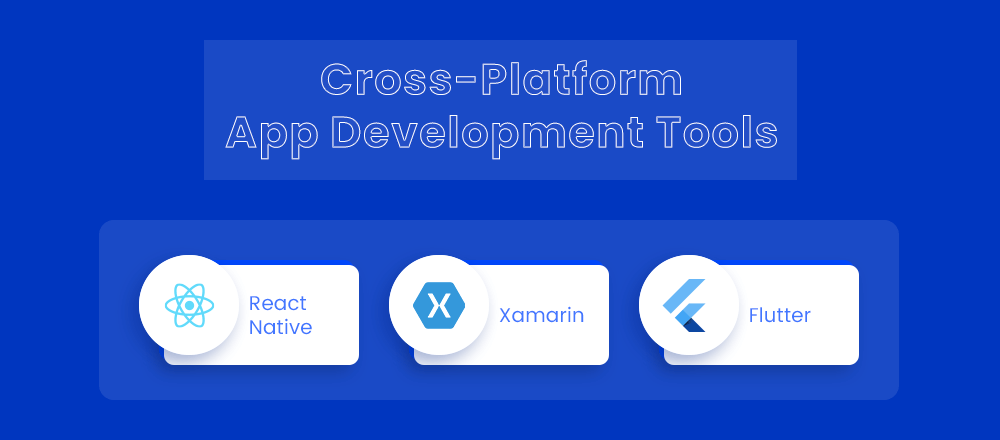
Advantages Of Cross-platform App Development
- Support for several operating systems
- Quick UI performance
- Time saver
- Reusability of Code
- Cost-effective
- Integration that is secure, stable, & smooth
Disadvantages of Cross-platform App Development
- Slower performance
- Access to OS functionality is restricted (however, not as limited as for hybrid)
- Features of a complex development
- Interaction with other native apps is poor.
- HTML5 code is difficult.
Cross-platform app development can meet the needs of practically any small to medium-sized organization. However, cross-platform apps may be insufficient when performance is crucial, or you need access to the platform- or device-specific features. These concerns, however, can be addressed by using third-party plugins or incorporating native code into the program. Cross-platform application development provides fast and effective solutions for practically every type of software.
Things to Consider While Choosing Native vs Hybrid vs Cross-Platform
You should consider various things while deciding the approach you want to take to build your mobile application. Following is the list of important things you should consider while choosing the right framework to work with.
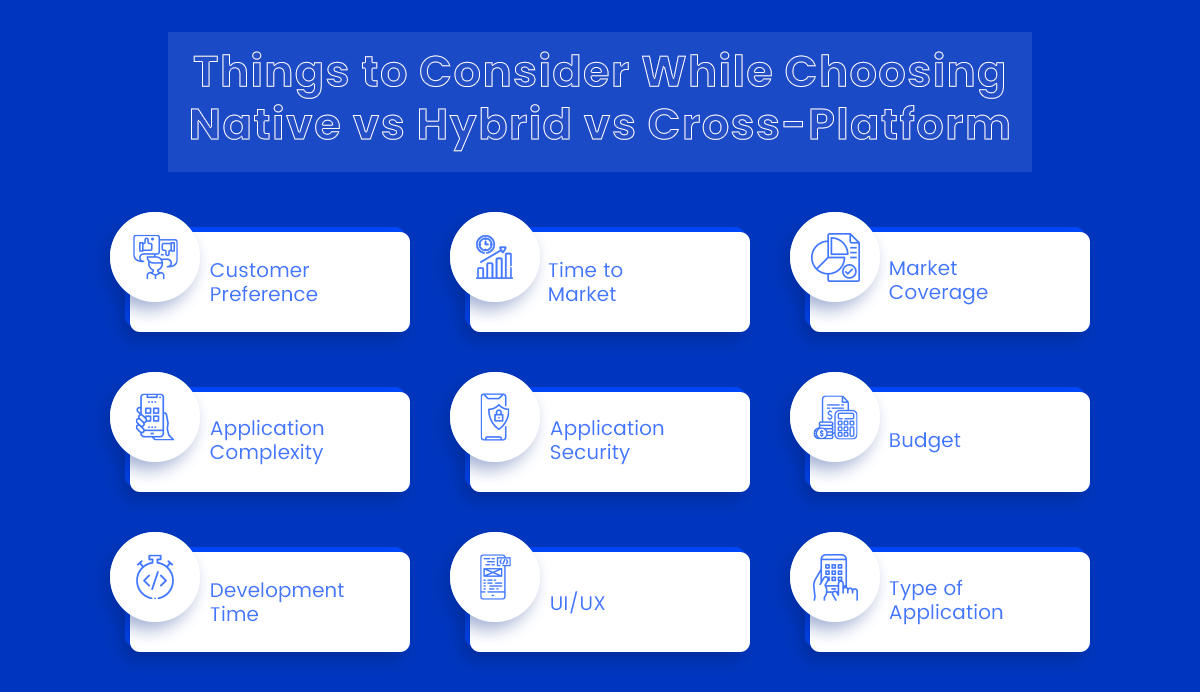
Customer Preference
Begin by learning about your target audience’s tastes, needs, and desires. What devices do they employ? Is it Android or iOS that you’re looking for? Or both, perhaps? Perhaps it is a group on the country in which your potential consumers reside. The majority of Americans favours Apple devices. Devices differ depending on where you are in the world. However, you may be puzzled as to why this is significant. If you travel to places where customers choose IOS, you’ll get your answer. You don’t need to hunt for a way to make an Android app. If, on the other hand, your audience is equally divided between Android and iPhone users, creating an app that caters to both groups will benefit your business.
Time to market
Another point to consider is time to market. How soon you want the app to be live for your audience is critical to decide. Each mentioned approach takes a different amount of time to develop and set up.
Every day, 990 apps are published in the Apple store, whereas 3739 apps are added daily.
With such competition, businesses are determined to launch their app on the Play Store and Apple store as soon as possible. When comparing native vs cross-platform vs hybrid in respect to time to market, native consumes the most time but if you don’t want much time consumption, then go for cross-platform and hybrid
Market coverage
For the time being, we have two major mobile app markets. And the majority of app developers prefer to have their apps available on both platforms. Cross-platform or hybrid app development is a winning strategy in this situation. They relieve you of the added stress that comes with using numerous platforms. You have a single team working on an app that runs on both iOS and Android. You’ll have more aches and pains if you go native.
Application complexity
Application complexity plays an important role in choosing a framework. For example, cross-platform app development is a fantastic choice if you create an app that displays information retrieved from the internet. On the other hand, you should choose native development if your application requires a lot of processing or access to low-level APIs like Bluetooth.
Application security
App security has become a top priority for business owners in recent years, as they strive to protect their company’s and customers’ data and sensitive information at all costs.
As of 2020, a single data breach average cost across all industries worldwide stood at nearly 4 million U.S. dollars. This was found to be most costly in the healthcare sector, with each leak reported to have cost the affected party a hefty 7.13 million U.S. dollars.
In terms of security, native applications have more built-in security measures than hybrid apps or cross-platform apps. These capabilities make it simple for developers to integrate file encryption, sophisticated fraud detection and maintain the highest level of app security. However, because the primary focus of startups is on development costs and time to market, hybrid and cross-platform app development frameworks are more popular. After their apps have stabilized and become well-known in the market, they can go to native apps to ensure that their apps are secure throughout.
Budget
It’s critical to know what your budget is and how much you can spend on app development. Developing a native app for iOS and Android is out of the question if you have a limited budget. You should concentrate on one Native app at a time for the greatest results. On the contrary, even if you have a large budget, you do not have to use native. To meet your specific needs, you can have a low-cost app development with a Hybrid or Cross-platform.
Development Time
In some cases, you’ll want to get an MVP app up and running right away. You should think about cross-platform programming at this point. There is no need to work on two different versions of the software. Instead, only a single development cycle is required for an app to be deployed on Android and iOS.
UI/UX
Native app development is the way to go if you want amazing visuals and an immersive experience. When working in a native environment, developers have Access to UI/UX components. The UI/UX portion of the software will be severely limited if you choose cross-platform.
Type of Application
The type of application plays a vital role in choosing the technology for its mobile app development. For example, if your application relies on hardware requirements like GPS, camera, etc., to function correctly, it is recommended to pick native apps. But, ultimately, it all depends on the functionalities you want to include in the application.
Comparison Table
Till now, we have seen all three Native vs Hybrid vs Cross-platform approaches in detail with their pros, cons, etc. So now let’s take a look at the comprehensive comparison of all of them.
| App Type | Native | Hybrid | Cross-Platform |
|---|---|---|---|
| Codebase | Individual coding – one per platform | Single codebase with potential platform specifics abilities | Single codebase with potential platform specifics abilities |
| Libraries | Not much dependency on open source libraries and platform | Highly dependent on different libraries and framework | Dependent on libraries and framework |
| Debugging | Native debugging tools | Native + web debugging tools | Depends on framework* |
| Tools | – Xcode – AppCode – Android Studio |
– Ionic – Apache Cordova – Visual Studio |
– React Native – Xamarin – Flutter |
| Dependencies | Less dependent on third-party libraries and platforms | Extensively dependent on third party libraries & platforms | Extensively dependent on third party libraries & platforms |
| Rendering Engine | Native | Browser | Native |
| Cost | Higher | Cost-effective | Cost-effective |
| Time to Market | Time Consuming | Time-Saving | Time-Saving |
| Development Language | Platform-Specific | HTML, CSS, JavaScript | HTML, CSS, JavaScript |
| Cross-Platform Support | No | Yes | Yes |
| User Experience | High | Medium to High | Medium to High |
| Code Reuse | No | Yes | Yes |
Best Practices for Selecting the Appropriate Development Strategy for a Successful App
- The target group of app user
- The preferable way for users to access the application
- Foreseen the required data
- Measure the level of complexity with functionality
- Need for native functionality
- The level of UI/UX required to maintain the app
- Development resources
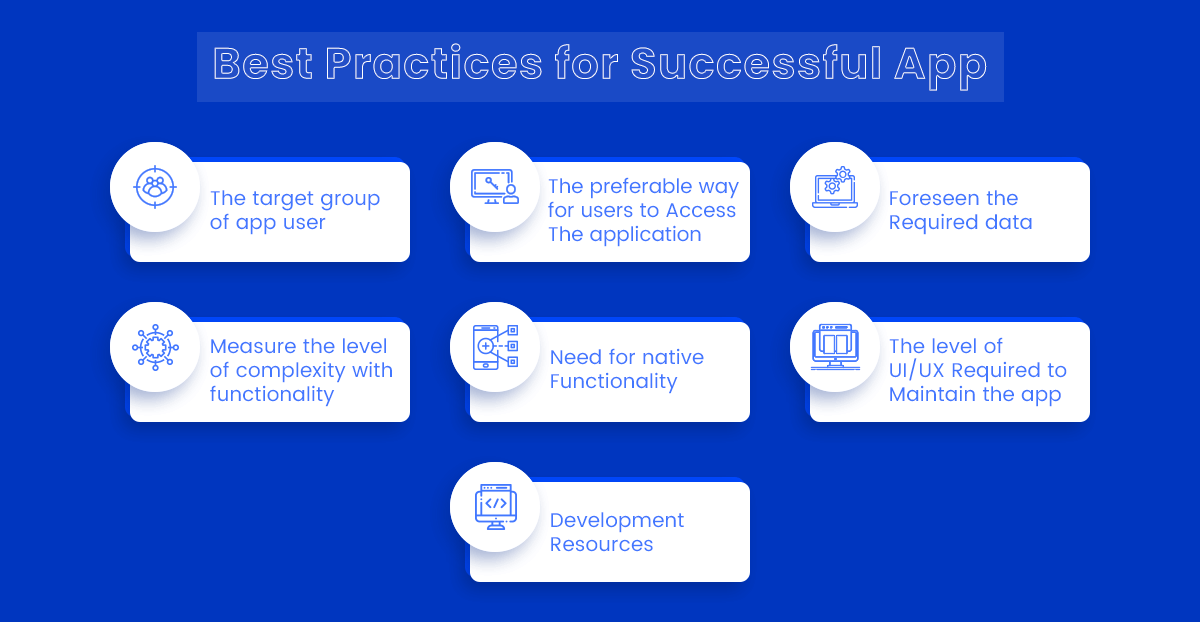
have a unique app Idea?
Hire Certified Developers To Build Robust Feature, Rich App And Websites.
Wrapping Up
Native app development is the ruler of app creation, with an advantage over hybrid apps and cross-platform app development. Each option has advantages and disadvantages, but an ambitious firm can benefit from developing a hybrid or cross-platform software as a pilot solution. Hybrid and cross-platform approaches are desirable due to their high development speed, single source code, cross-platform compatibility, time-saving web technologies, resource availability, and lower (initial) budget expenditures.
If you’re still unclear about which app development method is best for your company, contact our specialists. Our experts will assist you in developing a strategy that significantly reduces the amount of time and money spent on competitive research and development.
Also Check:
FAQs
- Native: Only works on a single platform.
- Cross-platform: Compatible with a variety of operating systems.
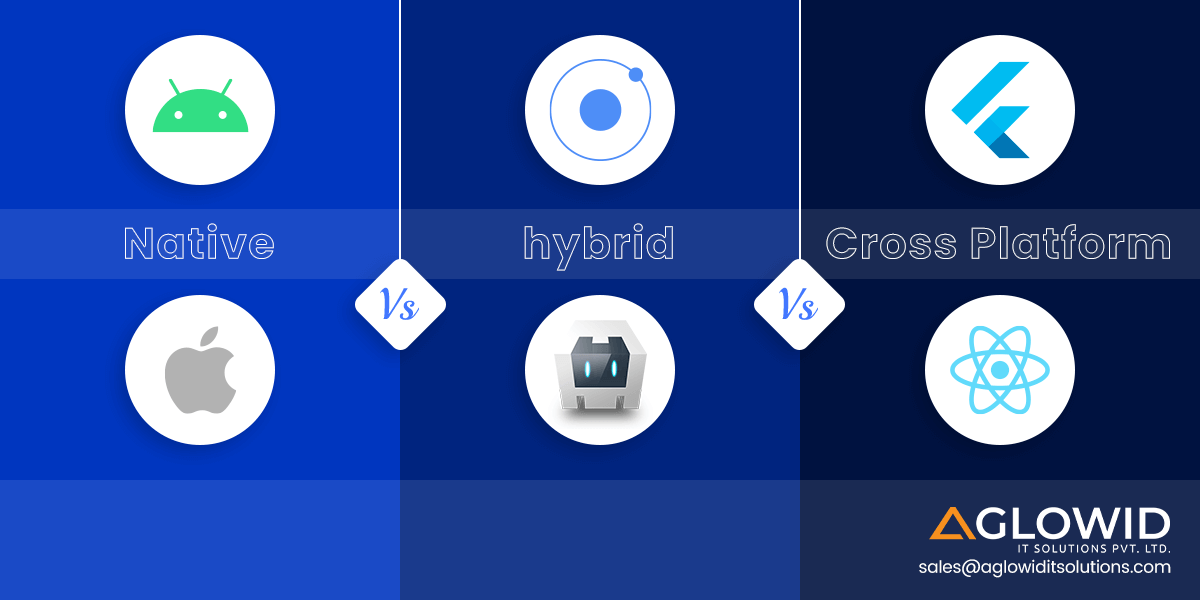

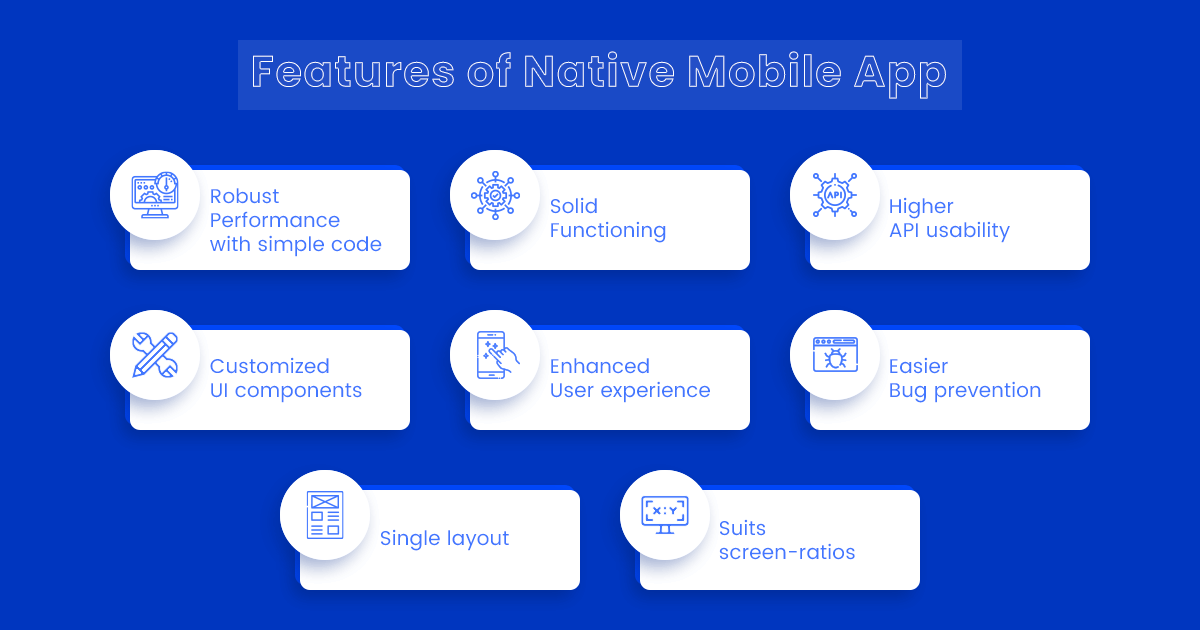
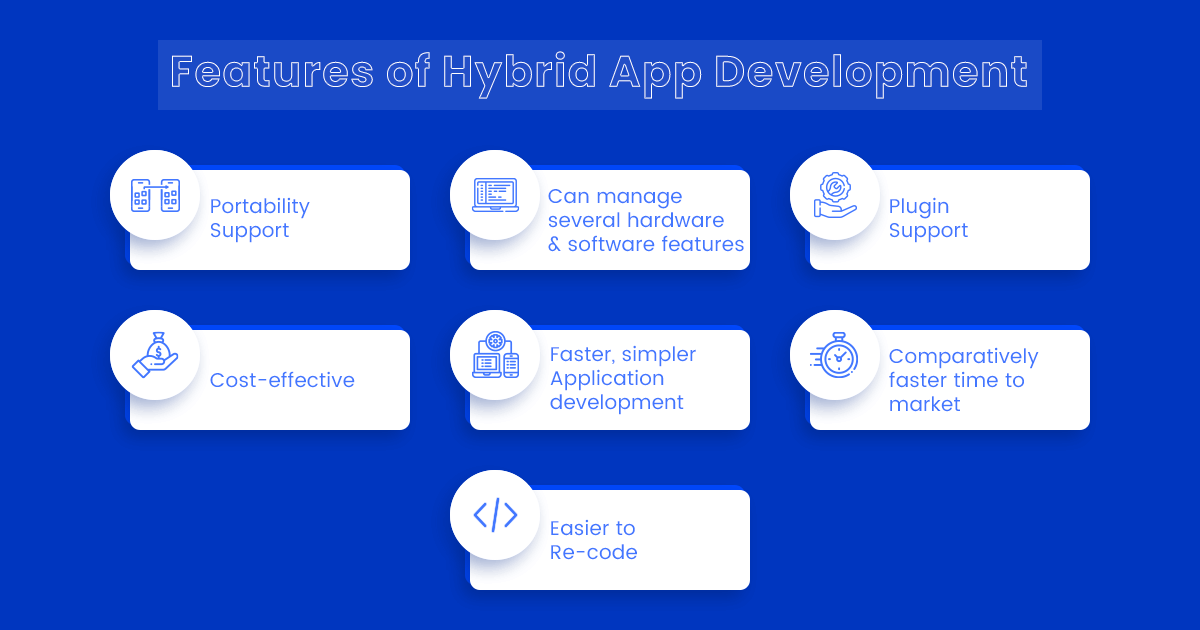
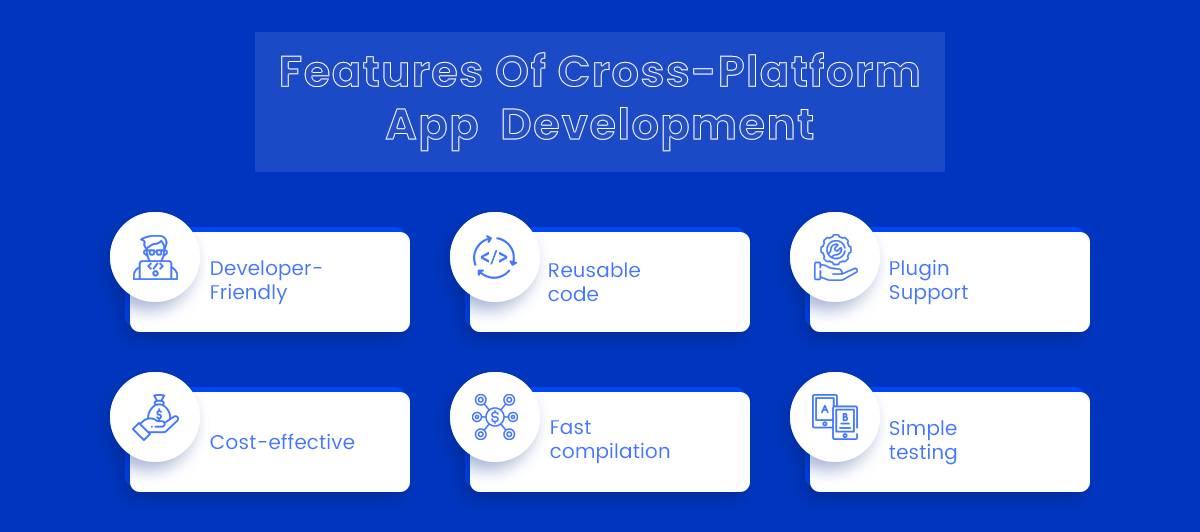

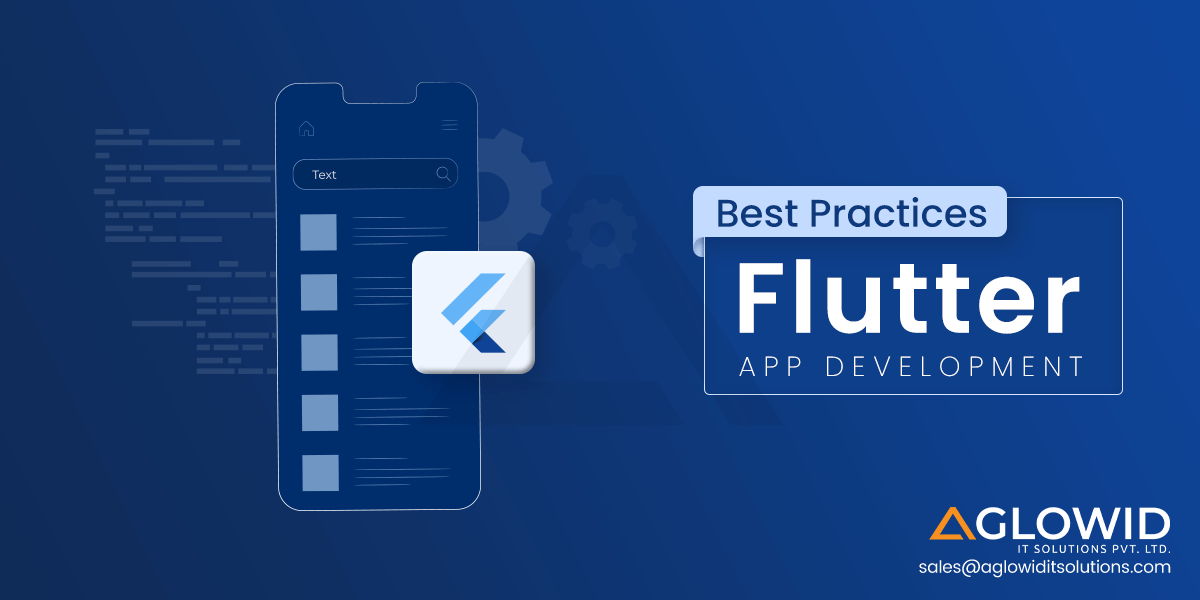


 Say
Say